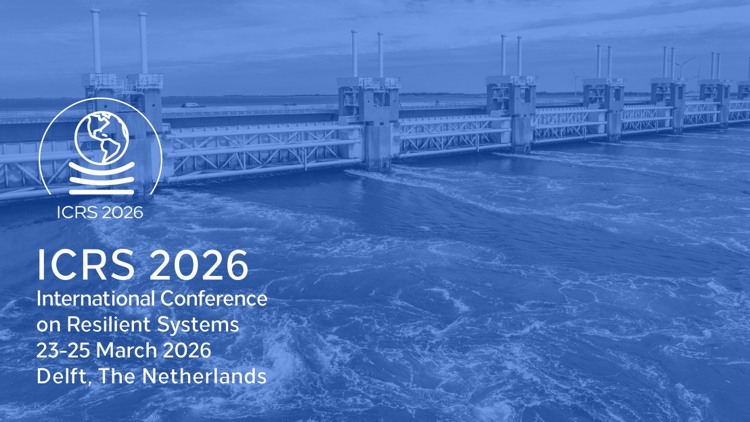The next International Conference on Resilient Systems will take place from 23 to 25 March 2026. The 4TU.Centre for Resilience Engineering will host the conference in Delft, the Netherlands.
As in the previous years, the conference will be a platform for researchers from all over the world to gather and share their expertise in the design, analysis and management of resilient, interconnected social-technical-environmental (STE) systems. We organize this conference together with the Singapore-ETH Centre, ETH Zürich and Technische Universität Darmstadt.
Important dates:
The deadline for submissions is 27 August 2025, noon CEST.
Early bird rates will apply until 15 October 2025. We will open the registration form in July.
Visit our website!
Find the latest information on our official webpage: https://www.icrs26.org/home





